Nut milk makers and blenders both offer their own advantages and disadvantages, and selecting the more versatile one relies on your usage requirements. Let’s delve into the details of nut milk makers and blenders to help you make an informed decision.
1 Nut Milk Makers
Benefits of Nut Milk Makers
Nut milk makers are becoming increasingly popular kitchen appliances for their convenience and useful features. They empower you to effortlessly create tasty and nutritious nut milks from various nuts like soybeans, almonds, walnuts, oats, and more, all without the hassle or time-consuming process.
Moreover, this appliance can also be utilized to prepare nutritious porridges, soups, reheat broths, or craft delectable smoothies.
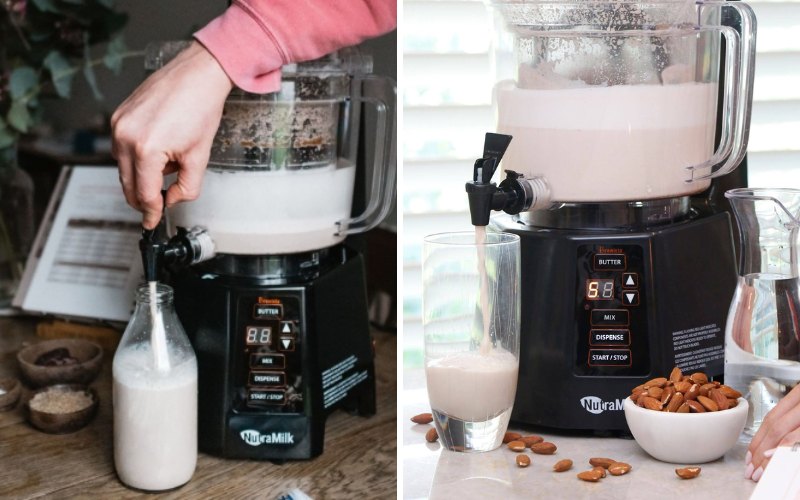 Benefits of Nut Milk Makers
Benefits of Nut Milk Makers
Advantages of Nut Milk Makers
- Dedicated to Making Nut Milk: Nut milk makers excel at grinding and cooking milk from different types of nuts, delivering smooth, creamy, and flavorful results.
- Time-Saving: These machines integrate grinding and cooking functions, saving you time compared to using a traditional blender.
- Versatile: Many modern nut milk makers can cook porridge, soups, blend smoothies, and even make shaved ice.
- Easy to Use: They feature user-friendly control panels, making them accessible to everyone.
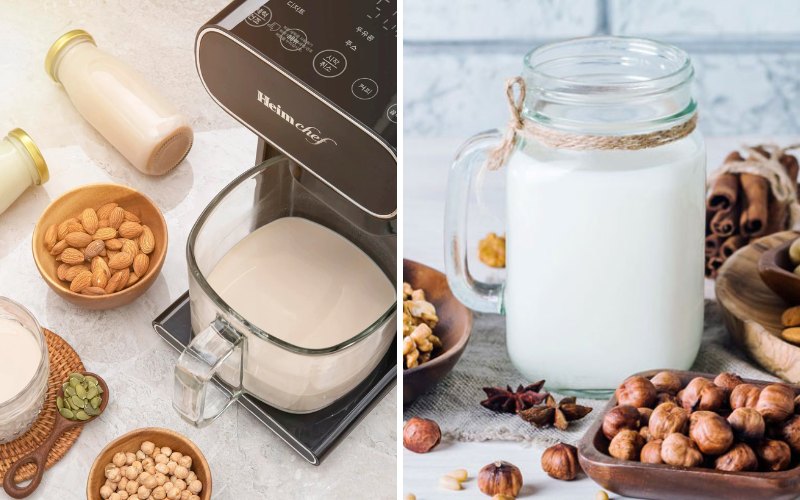 Advantages of Nut Milk Makers
Advantages of Nut Milk Makers
Disadvantages of Nut Milk Makers
- Higher Price: Nut milk makers typically come with a higher price tag than blenders.
- Bulky: These machines tend to be larger than blenders, taking up more counter space.
- Difficult to Clean: They have multiple parts that require cleaning after each use.
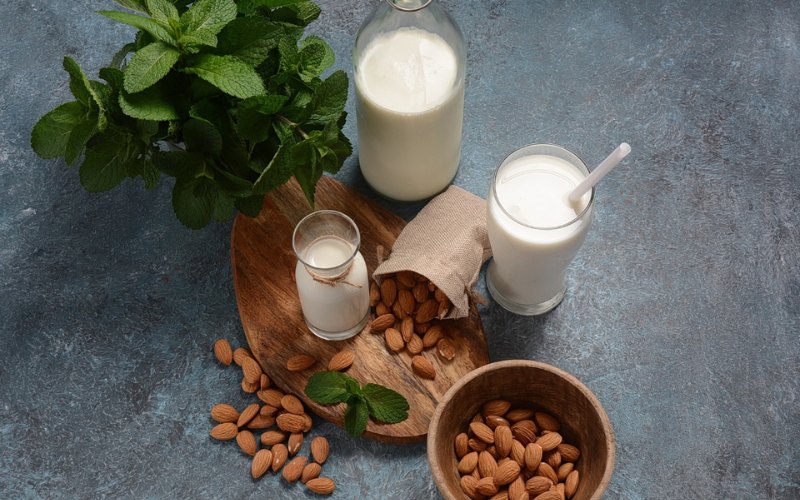 Disadvantages of Nut Milk Makers
Disadvantages of Nut Milk Makers
2 Blenders
Benefits of Blenders
Blenders are versatile kitchen appliances with a wide range of uses. Their most common function is to pulverize fruits, vegetables, and greens to create delicious and nutritious smoothies. They can also assist you in making fresh fruit juices, grinding meat, fish, nuts, grains, etc. for preparing meals like soups, porridges, baby food, and more.
Additionally, blenders can be employed for crushing ice, mixing and whipping ingredients for baking, beating eggs, grinding spices, making ice cream, nut milk, grinding coffee, crushing ice, mincing herbs, making yogurt, and preparing salads.
 Benefits of Blenders
Benefits of Blenders
Advantages of Blenders
- Affordable: Blenders are available in a range of prices, catering to various budgets.
- Compact: They have a small footprint, making them easy to move and store.
- Easy to Clean: Their simple design makes them effortless to clean after use.
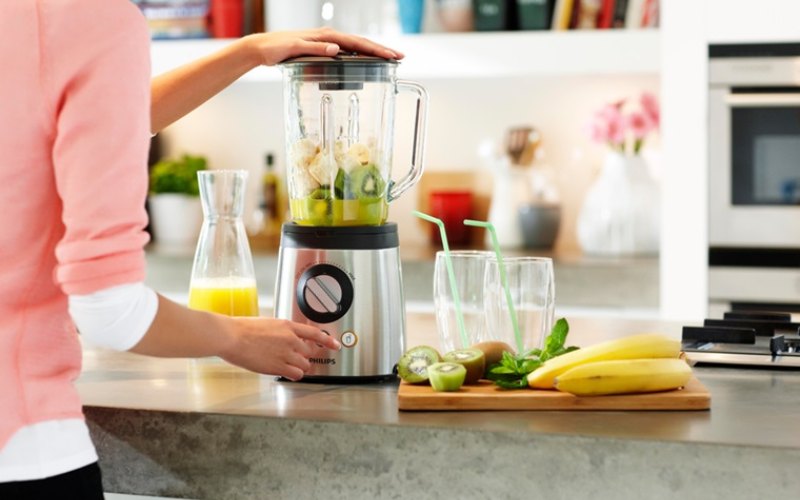 Advantages of Blenders
Advantages of Blenders
Disadvantages of Blenders
- Difficulty Grinding Hard Nuts: Conventional blenders struggle to grind hard nuts like almonds and walnuts.
- Time-Consuming: You need to cook the milk separately after grinding the nuts.
- Limited Functionality: They primarily serve the purpose of grinding food.
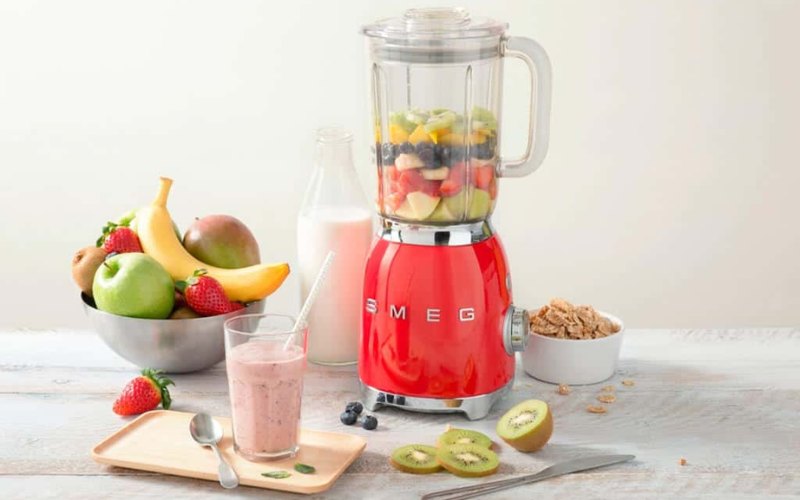 Disadvantages of Blenders
Disadvantages of Blenders
3 Comparing Nut Milk Makers and Blenders
| Criteria | Nut Milk Maker | Blender |
|---|---|---|
| Functionality | Dedicated to making nut milk | Blending smoothies, juices, grinding food |
| Price | Higher (1-5 million VND) | Varies (from a few hundred thousand to a few million VND) |
| Convenience | More convenient (automatic cooking and grinding) | Less convenient (requires cooking milk before grinding) |
| Grinding Capability | Grinds finer, especially with hard nuts | Grinds soft fruits well, may not be ideal for hard nuts |
| Noise Level | Higher | Lower |
| Ease of Cleaning | More difficult | Easier |
| Suitable for | Frequent nut milk consumers seeking convenience | Diverse usage requirements |
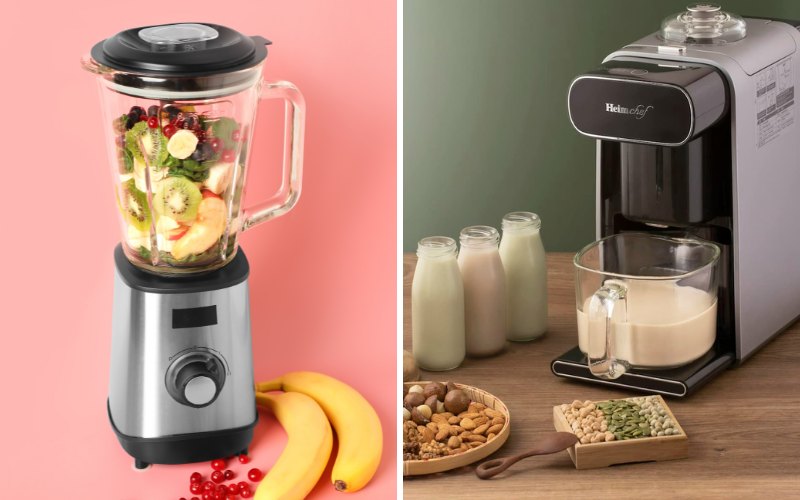 Comparing Nut Milk Makers and Blenders
Comparing Nut Milk Makers and Blenders
4 When to Buy a Nut Milk Maker or a Blender?
If you regularly make nut milk and prioritize saving time, a nut milk maker is the better choice.
If you only occasionally make nut milk and seek an affordable appliance, a blender would be more suitable.
Additionally, consider these factors when making your decision:
- Usage Requirements: What do you need the appliance for? Do you frequently make nut milk?
- Budget: How much can you spend on the purchase?
- Kitchen Space: Is your kitchen spacious enough to accommodate a nut milk maker?
- Ease of Use: Can you operate the appliance comfortably?
Both nut milk makers and blenders are valuable kitchen appliances. Choosing the right one depends on your usage habits and budget. Refer to our guide to gain additional insights!































